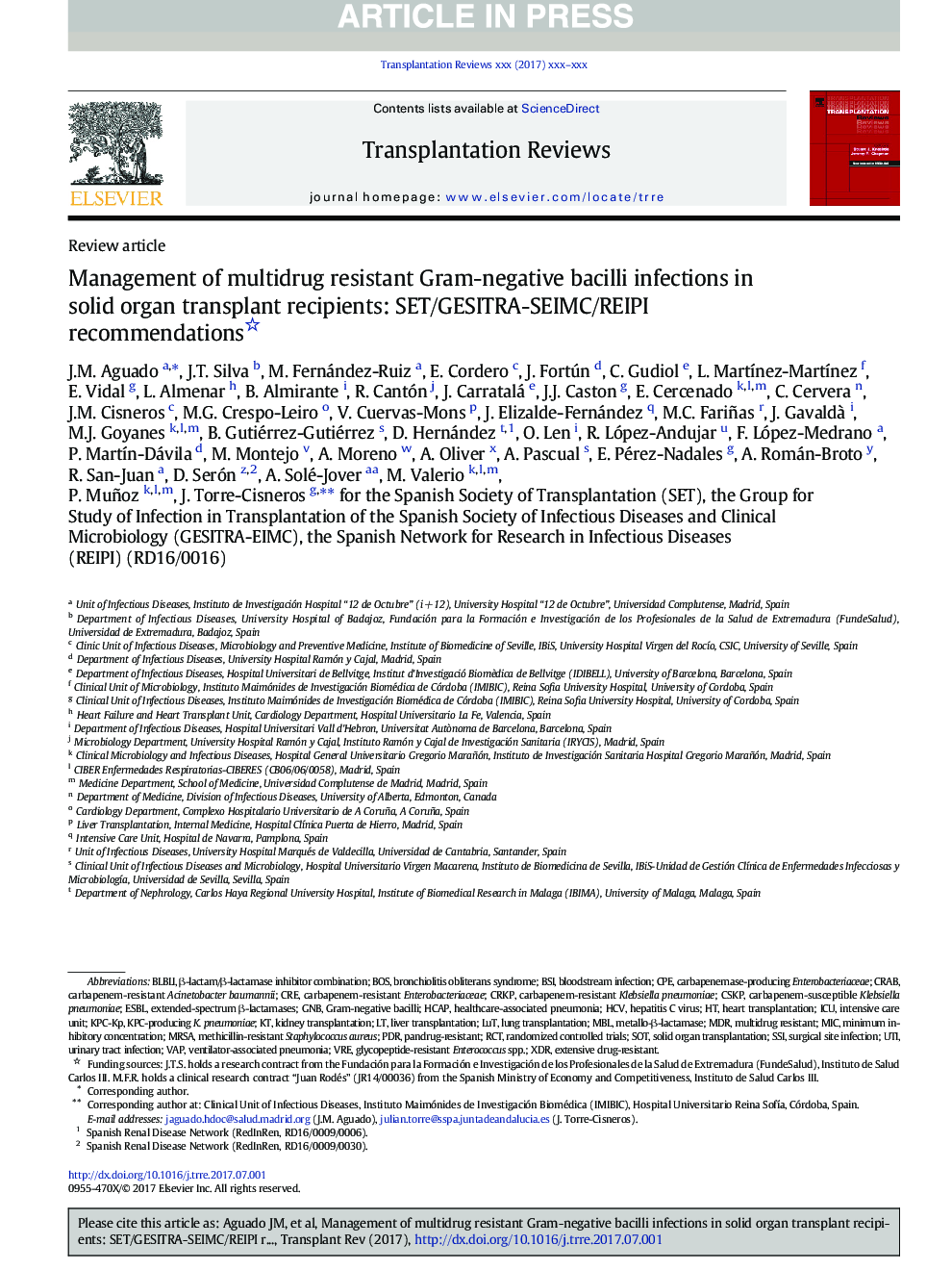| Article ID | Journal | Published Year | Pages | File Type |
|---|---|---|---|---|
| 8827612 | Transplantation Reviews | 2018 | 22 Pages |
Abstract
Solid organ transplant (SOT) recipients are especially at risk of developing infections by multidrug resistant (MDR) Gram-negative bacilli (GNB), as they are frequently exposed to antibiotics and the healthcare setting, and are regulary subject to invasive procedures. Nevertheless, no recommendations concerning prevention and treatment are available. A panel of experts revised the available evidence; this document summarizes their recommendations: (1) it is important to characterize the isolate's phenotypic and genotypic resistance profile; (2) overall, donor colonization should not constitute a contraindication to transplantation, although active infected kidney and lung grafts should be avoided; (3) recipient colonization is associated with an increased risk of infection, but is not a contraindication to transplantation; (4) different surgical prophylaxis regimens are not recommended for patients colonized with carbapenem-resistant GNB; (5) timely detection of carriers, contact isolation precautions, hand hygiene compliance and antibiotic control policies are important preventive measures; (6) there is not sufficient data to recommend intestinal decolonization; (7) colonized lung transplant recipients could benefit from prophylactic inhaled antibiotics, specially for Pseudomonas aeruginosa; (8) colonized SOT recipients should receive an empirical treatment which includes active antibiotics, and directed therapy should be adjusted according to susceptibility study results and the severity of the infection.
Keywords
MDRVAPBSIRCTPDRGNBMBLESBLVREXDRLUTSSIUTIMICCREHCApCPEBOSCarbapenem-resistant Acinetobacter baumanniiCarbapenemase-producing Enterobacteriaceaecarbapenem-resistant EnterobacteriaceaeCarbapenem-resistant Klebsiella pneumoniaeExtended-spectrum β-lactamasesRandomized controlled trialsMRSAmethicillin-resistant Staphylococcus aureusSOTgram-negative bacilliICUintensive care unitMinimum inhibitory concentrationCrabBronchiolitis obliterans syndromeSolid organ transplantationurinary tract infectionsurgical site infectionBloodstream infectionMetallo-β-lactamasepandrug-resistantMultidrug resistantHepatitis C virusHCVVentilator-associated pneumoniaHealthcare-associated pneumoniaLung transplantationHeart transplantationLiver transplantationKidney transplantation
Related Topics
Health Sciences
Medicine and Dentistry
Transplantation
Authors
J.M. Aguado, J.T. Silva, M. Fernández-Ruiz, E. Cordero, J. Fortún, C. Gudiol, L. MartÃnez-MartÃnez, E. Vidal, L. Almenar, B. Almirante, R. Cantón, J. Carratalá, J.J. Caston, E. Cercenado, C. Cervera, J.M. Cisneros, M.G. Crespo-Leiro,
